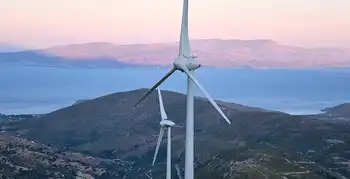Venezuela Power Outage cripples the national grid after a massive blackout; alleged cyber attacks at Guri Dam and Caracas, damaged transmission lines, CORPOELEC restoration, looting, water shortages, and sanctions pressure compound recovery.
Key Points
A March 2019 blackout crippling Venezuela's grid amid alleged cyber attacks, equipment failures, and slow restoration.
✅ Power restored partially after 96 hours across all states
✅ Alleged cyber attacks at Guri Dam and Caracas systems
✅ CORPOELEC urges reduced load during grid stabilization
Venezuelan authorities continue working to bring back online the electric grid following a massive outage that started on Thursday, March 7.
According to on-the-ground testimonies and official sources, power finally began to reach Venezuela’s western states, including Merida and Zulia, on Monday night, around 96 hours after the blackout started. Electricity has now been restored at least in some areas of every state, with authorities urging citizens, as seen in Ukraine's efforts to keep lights on during crisis, to avoid using heavy usage devices while efforts to restore the whole grid continue.
President Nicolas Maduro gave a televised address on Tuesday evening, offering more details about the alleged attack against the country’s electrical infrastructure. According to Maduro, both the computerized system in the Guri Dam, on Thursday afternoon, and the central electrical “brain” in Caracas, on Saturday morning, suffered cyber attacks, while recovery was delayed by physical attacks against transmission lines and electrical substations, a pattern seen in power outages in western Ukraine as well.
“The recovery has been a miracle by CORPOELEC (electricity) workers” he said, vowing that a “battle” had been won.
Maduro claimed that the attacks were directed from Chicago and Houston and that more evidence would be presented soon. The Venezuelan president had announced on Monday that two arrests were made in connection to alleged acts of sabotage against the communications system in the Guri Dam.
Venezuela’s electrical grid has suffered from poor maintenance and sabotage in recent years, with infrastructure strained by under-investment and Washington’s economic sanctions further compounding difficulties, with parallels to electricity inequality in California highlighting broader systemic challenges, though causes differ.
The extended power outage saw episodes of lootings take place, especially in the Zulia capital of Maracaibo. Food warehouses, supermarkets and a shopping mall were targeted according to reports and footage on social media.
Isolated episodes of protests and lootings were also reported in other cities, including some sectors of Caracas. A video spread on social media appeared to show a violent confrontation in the eastern city of Maturin in which a National Guardsman was shot dead.
While electricity has been gradually restored, public transportation and other services have yet to be reactivated, a contrast with U.S. grid resilience during COVID-19 where power systems remained stable, with the government suspending work and school activities until Wednesday.
In Caracas, attention has now turned to water. Shortages started to be felt after the water pumping system in the nearby Tuy valley was shut down amid the electricity blackout, underscoring that electricity is civilization in conflict zones, as interdependent systems cascade. Authorities announced on Tuesday afternoon that the system was due to resume supplying water to the capital metropolitan region.
Some communities protested the lack of water on Monday and long queues formed at water distribution points, with local authorities looking to send water tanks to supply communities and guarantee the normal functioning of hospitals.
The Venezuelan government has yet to release any information concerning casualties in hospitals, with NGO Doctors for Health reporting 24 dead as of Monday night following alleged contact with multiple hospitals. Higher figures, including claims of 80 newborns dead in Maracaibo, have been denied by local sources.
Self-proclaimed “Interim President” Juan Guaido has blamed the electricity crisis on government mismanagement and corruption, dismissing the government’s cyber attack thesis on the grounds that the system is analog, and attributing the national outage to a lack of qualified personnel needed to reactivate the grid. However, these claims have been called into question by people with knowledge of the system.
Guaido called for street protests on Tuesday afternoon which saw small groups momentarily take to streets in Caracas and other cities, or banging pots and pans from windows.
The opposition-controlled National Assembly, which has been in contempt of court since 2016, approved a decree on Monday declaring a state of “national alarm,” blaming the government for the current crisis and issuing instructions for public officials and security forces.
Likewise on Tuesday, Venezuelan Attorney General Tarek William Saab announced that an investigation was being opened against Guaido regarding his alleged responsibility for the recent power outage. Saab explained that this investigation would add to the previous one, opened on January 29, as well as determine responsibilities in instigating violence.
Related News












